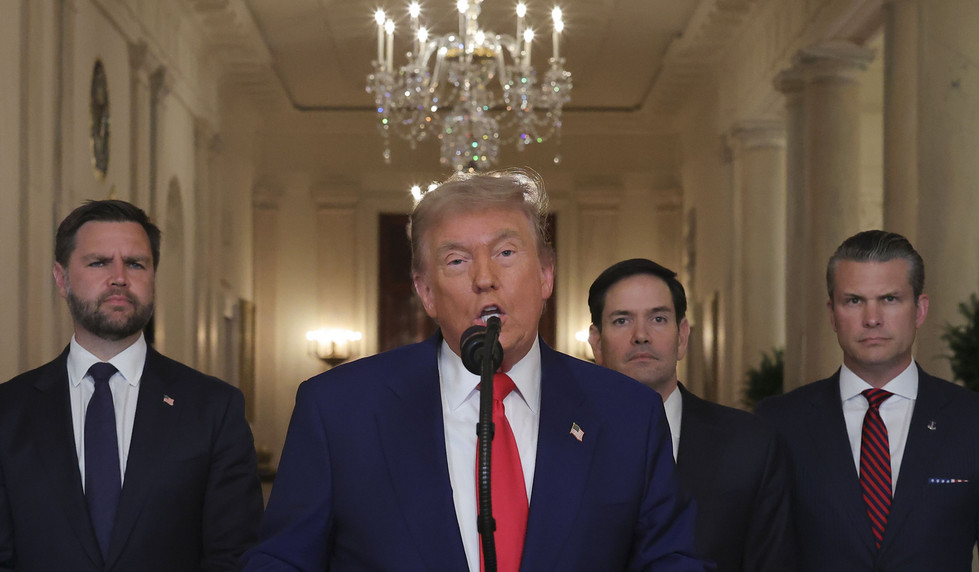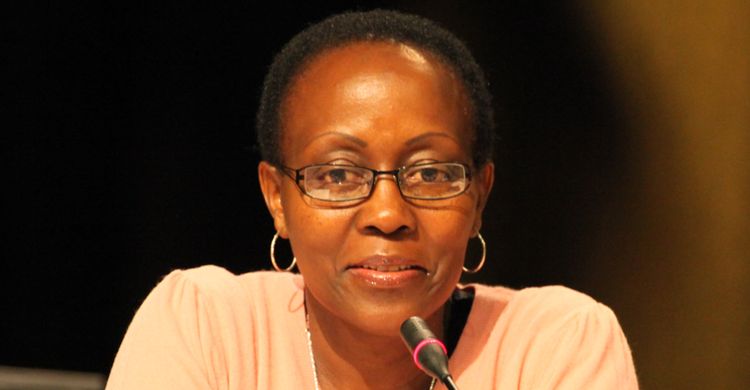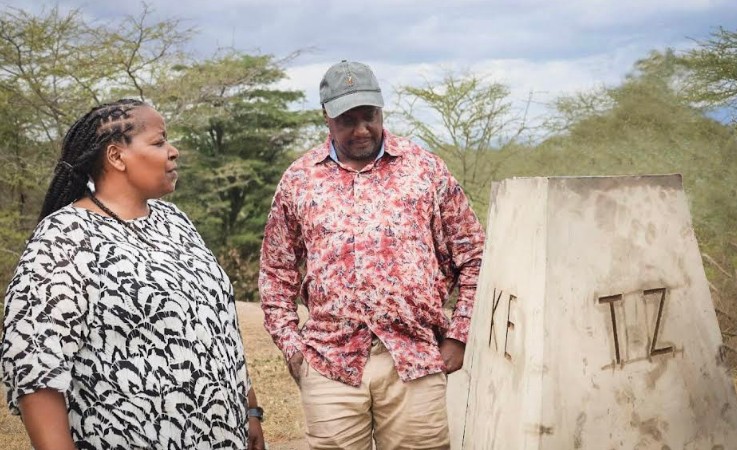By TWV Team
In a dramatic escalation of tensions in the Middle East, the United States launched what President Donald Trump termed precision airstrikes on three of Iran’s key nuclear facilities, Fordow, Natanz, and Isfahan, on Saturday night. Addressing the American people from the White House, Trump hailed the operation as a “spectacular military success,” claiming that Iran’s nuclear enrichment capabilities had been “completely and totally obliterated.”
The strikes marked the first direct US military action against Iran, raising global concerns about regional stability and the potential economic fallout, including for Kenya.
Flanked by Vice President JD Vance, Secretary of State Marco Rubio, and Defence Secretary Pete Hegseth, President Trump warned Iran against retaliation and urged Tehran to seek peace. “Our objective was the destruction of Iran’s nuclear enrichment capacity and a stop to the nuclear threat posed by the world’s number one state sponsor of terror,” Trump declared.
He emphasised that the strikes were coordinated with Israel, describing his collaboration with Israeli Prime Minister Benjamin Netanyahu as unprecedented. “There will be either peace, or there will be tragedy for Iran far greater than we have witnessed over the last eight days,” he added, hinting at further targets if Iran does not comply.
The US employed B-2 stealth bombers and a 30,000-pound bunker-buster bomb to target the heavily fortified Fordow facility, alongside Natanz and Isfahan, critical sites in Iran’s uranium enrichment programme. Trump’s decision follows weeks of Israeli airstrikes on Iranian military and nuclear targets, prompted by fears that Tehran was nearing nuclear weapons capability. Iran, however, insists its nuclear programme is for peaceful purposes, a claim disputed by both the US and Israel.
Iran’s Foreign Minister, Abbas Araghchi, condemned the attacks as a “grave violation” of international law, warning of “everlasting consequences” and reserving Tehran’s right to retaliate. Iranian officials downplayed the damage, claiming critical equipment had been relocated and that the nuclear programme would continue unabated.
While the conflict unfolds thousands of miles away, its economic repercussions could significantly affect Kenya, a nation reliant on global trade, energy imports, and regional stability.
How Kenya May Feel the Impact
- Soaring Oil Prices
As a net oil importer, Kenya is highly vulnerable to fluctuations in global oil prices. Iran is a major oil producer, and any disruption to its exports, or worse, a closure of the Strait of Hormuz, through which 20% of the world’s oil transits, could send crude prices soaring. Analysts suggest a prolonged conflict could push oil prices above $100 per barrel, increasing Kenya’s import bill and fuel costs. This would raise transport and production expenses, fuelling inflation and squeezing household budgets.
“Kenya’s economy is already grappling with high fuel prices. A Middle East crisis could exacerbate this, making essentials like food and transport even less affordable,” says the University of Nairobi economist. - Trade Disruptions
The Middle East is a critical hub for global trade, and Kenya’s Mombasa Port serves as a gateway for goods entering East Africa. Escalating conflict could disrupt shipping routes in the Red Sea and the Persian Gulf, where Iranian-backed Houthi rebels in Yemen have threatened to target US and Israeli vessels. Such disruptions could delay imports of vital goods, including fertilisers, electronics, and pharmaceuticals while increasing shipping costs. Kenyan exporters, particularly of tea and horticultural products to Middle Eastern markets like the UAE and Saudi Arabia, may also face reduced demand if regional economies falter. - Threats to Remittances
Kenya relies heavily on remittances from its diaspora, with significant numbers working in Gulf countries. Heightened regional instability could lead to job losses or repatriation of Kenyan workers, reducing remittance inflows, which reached KSh 487 billion in 2024. In addition, Kenya’s growing labour export programme to countries such as Qatar and Saudi Arabia could stall if these nations tighten immigration or prioritise domestic security concerns. - Security Concerns
Kenya’s role as a regional economic hub depends on stability in East Africa. A wider Middle East conflict could embolden terrorist groups such as Al-Shabaab, which has ties to Iranian proxies, potentially increasing security risks along Kenya’s borders. This could deter foreign investment in sectors like tourism and manufacturing, both of which are critical to Kenya’s Vision 2030 goals. Moreover, global investors may adopt a risk-averse stance, reducing capital flows to emerging markets like Kenya. - Currency Volatility
A spike in oil prices and supply chain disruptions could weaken the Kenyan shilling, which has already been under pressure against the US dollar. A depreciating currency would make imports more expensive, further stoking inflation. The Central Bank of Kenya may be forced to raise interest rates to curb inflation, potentially slowing economic growth and increasing borrowing costs for businesses and consumers.
Policy and Business Responses
Kenya’s Foreign Ministry has yet to issue an official statement on the US strikes, but Nairobi has historically advocated for diplomatic solutions to global conflicts. As a non-permanent member of the UN Security Council, Kenya could push for de-escalation and dialogue to prevent further destabilisation.
Economically, the government may need to bolster strategic fuel reserves, diversify import sources, and accelerate renewable energy projects to reduce reliance on imported oil.
For Kenyan businesses, hedging against currency risks and exploring alternative markets in Africa and Asia could mitigate trade disruptions. Meanwhile, consumers may face tougher times ahead, with higher prices for fuel, food, and imported goods looming. As the world watches the unfolding crisis, Kenya must balance economic resilience with a diplomatic voice for peace, ensuring that the ripple effects of this distant conflict do not derail its development aspirations.





